The 2019 NYS Funders Conference included a special keynote address, as well as insightful national-level plenary speakers, engaging concurrent breakout sessions, and site-visits to organizations and locations around Buffalo. To access conference resources, contact the NY Funders Alliance office.
Keynote and Plenary Sessions
KEYNOTE SPEAKER: ERIC LIU, CO-FOUNDER AND CEO OF CITIZEN UNIVERSITY
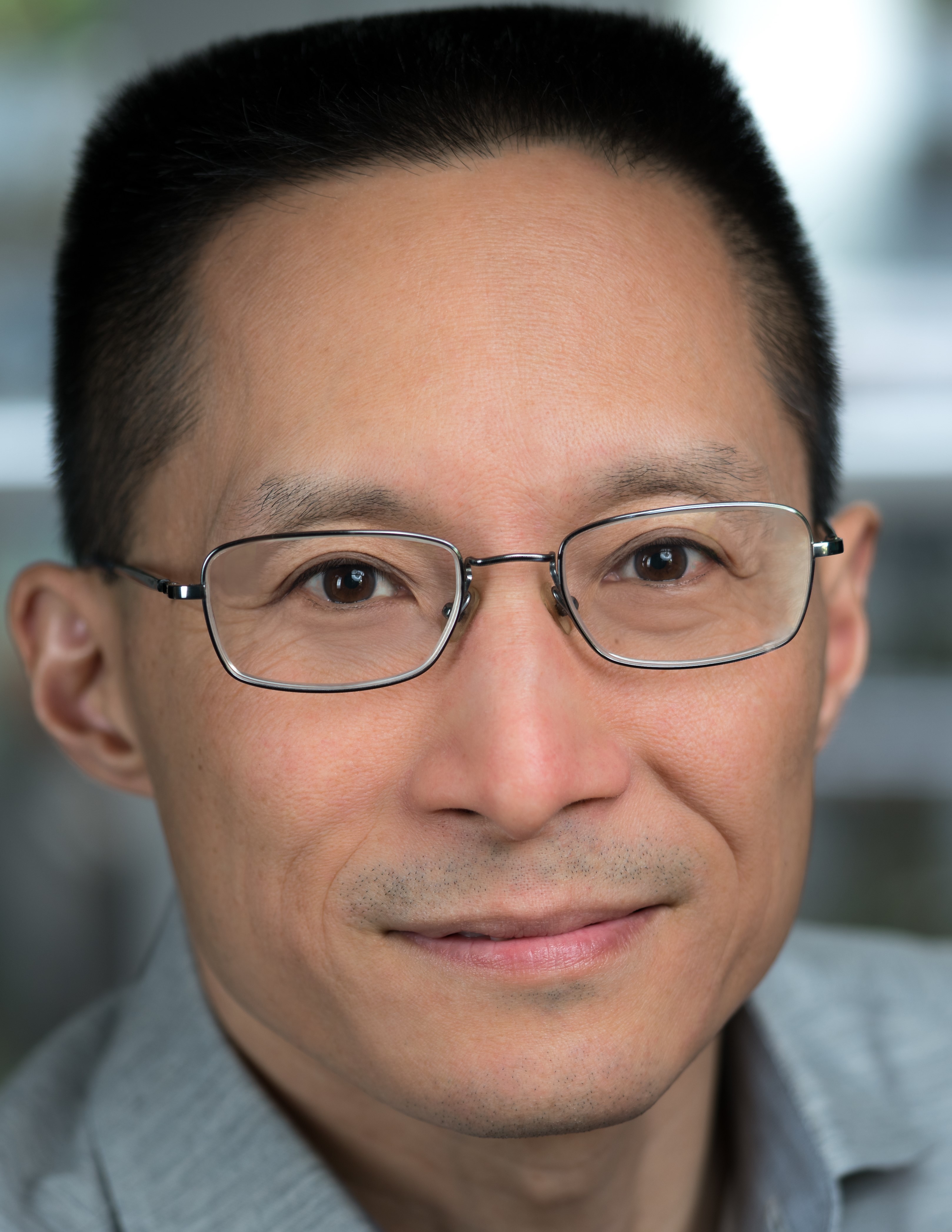 Monday, September 9th, 2019
Monday, September 9th, 2019
“Democracy works only when enough of us believe democracy works” – Eric Liu.
How do we rekindle that belief? How do we, as individuals, organizations, communities, corporations — even professions — reinvigorate the meaning and spirit of citizenship in America? These are the questions civic evangelist Eric Liu will explore in his compelling keynote address that will celebrate our shared values and challenge Americans to live up to them.
Liu, son of Chinese immigrants and former White House speechwriter, is the CEO of Citizen University, a nonprofit working to foster a culture of powerful, responsible citizenship. He also directs the Aspen Institute’s Citizenship & American Identity Program and is a correspondent at TheAtlantic.com. His eight books include You’re More Powerful Than You Think: A Citizen’s Guide to Making Change Happen, and the national best-sellers The Gardens of Democracy and True Patriot. His first book, The Accidental Asian, Notes of a Native Speaker was a New York Times Notable Book featured in the PBS documentary, “Matters of Race.” Liu’s latest book is Become America: Civic Sermons on Love, Responsibility and Democracy, which grows out of the Civic Saturday phenomenon that Liu and his team pioneered and has now spread nationwide.
PLENARY SPEAKER: KRISTEN CAMBELL, EXECUTIVE DIRECTOR OF PACE
Tuesday, September 10th, 2019
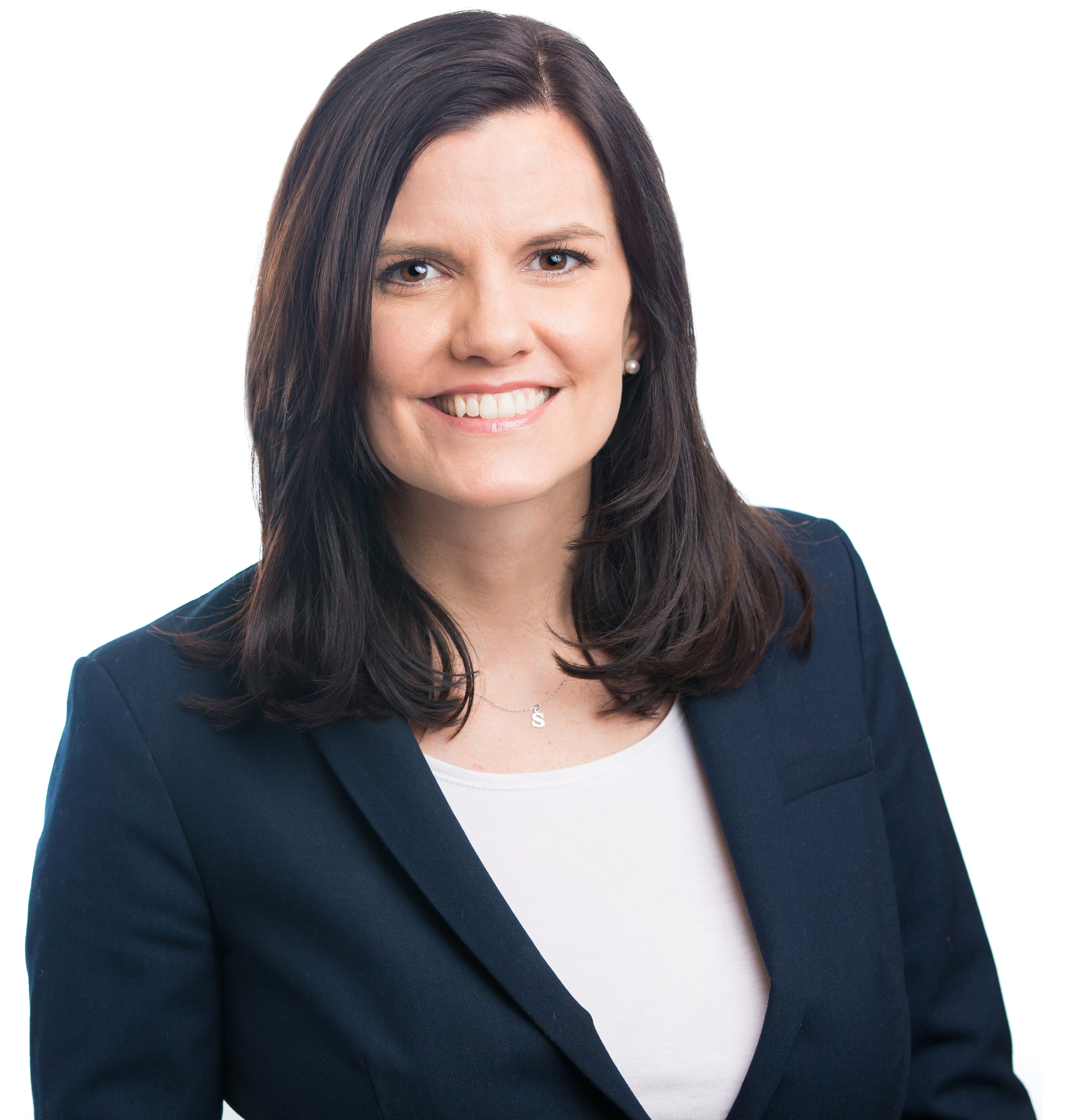
Kristen Cambell is Executive Director of PACE (Philanthropy for Active Civic Engagement). PACE’s mission is to inspire interest, understanding, and investment in civic engagement within philanthropy and to be a voice for philanthropy in larger conversations taking place in the fields of civic engagement, service, and democratic practice.
Previously, Kristen was an independent consultant, focusing primarily in civic engagement, education, and leadership. She was Chief Program Officer for the National Conference on Citizenship, where she served for 6 years, and prior to that, was a member of the social investment team at the Case Foundation. She originally launched her career in the nonprofit sector with a year of national service as an AmeriCorps*VISTA at the Points of Light Foundation. Kristen serves on the board of the United Philanthropy Forum and the working group of the Philanthropy Initiative at the Smithsonian Institution, among other leadership affiliations.
PLENARY SPEAKER: DON PERRY, EXECUTIVE PRODUCER AND SHOWRUNNER OF FAMILY PICTURES, USA
Tuesday, September 10th, 2019
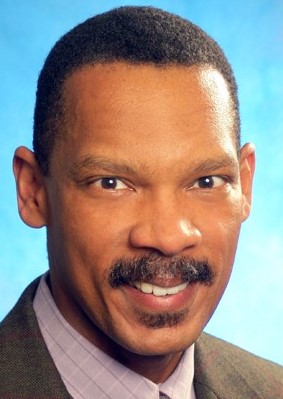
Don Perry is the Executive Producer and Showrunner for Family Pictures USA, a new three-part television series that premiered on PBS earlier this month.
The show uses family photos and stories to reveal our nation’s history, diversity, and common values. Family photos of everyday milestones — marriage, childhood, a new car, a growing business — provide a visual portal through which to examine the roots, surprising connections and provocative parallels that shed light on our collective past and our shared future. Don will show clips from the show and talk about some reflections and lessons that came out of developing the show like the value of storytelling, the ties that connect us all, and the strength of community.
All attendees are invited to bring a favorite family photo or one with special significance to participate in a photo sharing exercise
Don is CEO and a lead architect of the digital media venture Digital Diaspora Family Reunion LLC, the production entity behind the TV show. He has been nominated for Emmy and Peabody Awards and is the winner of an NAACP Image Award for Outstanding Documentary Film (Through A Lens Darkly.)
PLENARY SPEAKER: TRISTA HARRIS, PHILANTHROPIC FUTURIST
Wednesday, September 11th, 2019
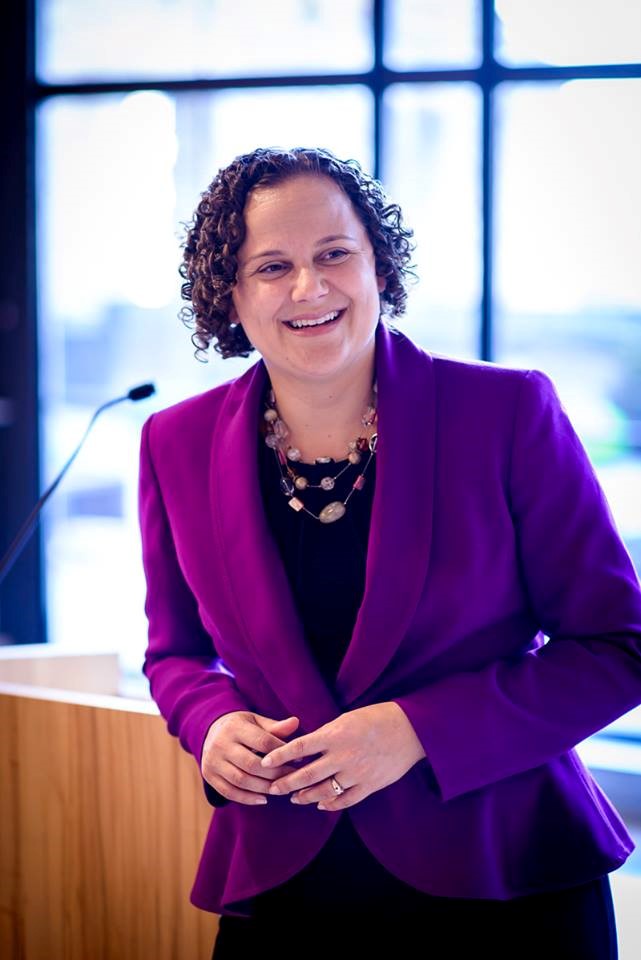 An increasing rate of change makes the already challenging work of doing good, even more difficult. We are all trying to make the world a better place but are often using yesterday’s information to do so. What if we could predict the future and prepare for the coming realities that will impact our grantees and our communities? Join Trista Harris as she takes us on an interactive journey where she’ll uncover tools to create the future.
An increasing rate of change makes the already challenging work of doing good, even more difficult. We are all trying to make the world a better place but are often using yesterday’s information to do so. What if we could predict the future and prepare for the coming realities that will impact our grantees and our communities? Join Trista Harris as she takes us on an interactive journey where she’ll uncover tools to create the future.
Trista Harris is a philanthropic futurist and nationally known as a passionate advocate for leaders in the philanthropic and nonprofit sectors. Trista’s work has been covered by the Chronicle of Philanthropy, Forbes, CNN, the New York Times, and numerous social sector blogs. She is also co-author of the books How to Become a Nonprofit Rockstar and FutureGood. She is President of FutureGood, a consultancy focused on helping visionaries build a better future.
She has spent her whole career dedicated to the social sector, starting with a job as a summer parks assistant at the age of 15. Before starting FutureGood, Trista was President of the Minnesota Council on Foundations, a vibrant community of grantmakers who award more than $1.5 billion annually. Prior to joining MCF in 2013, she was executive director of the Headwaters Foundation for Justice in Minneapolis, and she previously served as program officer at the St. Paul Foundation.
Trista has been certified in strategic foresight by Oxford University, earned her Master of Public Policy degree from the Humphrey School of Public Affairs, University of Minnesota, and her Bachelor of Arts from Howard University. She is a board member for the Association of Black Foundation Executives. Trista served on the Minnesota Super Bowl Host Committee and the Governor’s Council on Law Enforcement and Community Relations, which was convened after the shooting of Philando Castile. She is a passionate national advocate for the social sector using the tools of futurism to solve our communities’ most pressing challenges.
Breakout Sessions
The 2019 NYS Funders Conference will feature concurrent breakout sessions on both Tuesday, September 10th and Wednesday, September 11th. These sessions will allow conference attendees to advance their grantmaking by improving the effectiveness of their work, learning from varying perspectives, and expanding their understanding of emerging trends. The breakout sessions that are featured were identified through an RFP process and evaluated by a Selection Committee made up of grantmakers representing all corners of New York State and multiple types of grantmaking organizations.
Conference attendees will self-select which breakout sessions to attend when they arrive at the conference. Attendees will not sign up for specific breakout sessions in advance of the conference dates.
Click through the session descriptions below!
How Funders Can Support a Legacy City Revitalization Initiative that WORKS
Description:
What can be done to revitalize post-industrial villages and cities that have endured decades of economic and cultural decline? We have discovered a novel and innovative strategy that is a 180 degree shift away from the many failed strategies of the past 4 decades. This breakout session will demonstrate this approach, which has resulted in a transformative impact in two Upstate NY Cities. A presentation will be given by both the Oswego Renaissance Association (ORA) and Fulton Block Builders (FBB) about their Healthy Neighborhood initiatives. They will explain how and why their revitalization strategies have been so impactful over the past 5 years. The work has been fueled in large part by philanthropy, with the Richard S. Shineman Foundation providing the majority of funding to these grassroots organizations each year. Following the presentation, session participants will play an interactive board game to practice the awarding of funds to maximize impact.
Speakers/Panelists:
 Linda Eagan spent her life working in the field of human services until 2016 when she was inspired to start a volunteer program called Fulton Block Builders-a grass roots community revitalization program mirroring the successes of the Oswego Renaissance Association.
Linda Eagan spent her life working in the field of human services until 2016 when she was inspired to start a volunteer program called Fulton Block Builders-a grass roots community revitalization program mirroring the successes of the Oswego Renaissance Association.
She moved to Fulton NY in 1987. Since that time the city experienced a transition from a stable community to a disengaged community. As manufacturing left, so did the familiar people. Over time, the behavioral norms and neighborhood values became as depressed as the property values. Residents stopped interacting with their neighbors, which in time created a disengagement in the community.
Linda was drawn to the Healthy Neighborhood approach because it builds on the strengths of a community. This resonated immediately because whether Linda was raising her family; working in juvenile detention; prevention education; teen pregnancy or public health, she looked for the strengths in each person or group. She believes strongly that all people have many assets-even though- sometimes-they are hard to identify when hope is lost. Fulton had lost hope, just as so many clients she had worked with over the years. It seemed like a very reasonable idea to transfer her skills to community revitalization.
 Karen Goetz was hired as the Executive Director of the Richard S. Shineman Foundation in October of 2014, after serving on the inaugural Board of Directors for two years.
Karen Goetz was hired as the Executive Director of the Richard S. Shineman Foundation in October of 2014, after serving on the inaugural Board of Directors for two years.
As Executive Director, Karen works directly with and for the nine-member Board of Directors, including Founder Dr. Barbara P. Shineman, in the development of goals and long-range plans for the foundation, whose mission is to be a “Catalyst for Change” in Oswego County. She is responsible for the fiscal and administrative management of the foundation. She represents and serves as spokesperson for the foundation to the general public, not-for-profit organizations, educational institutions, and government and business entities.
Karen is a 1977 graduate of Indiana University, with a Bachelor of Science degree in Education. Her first 32 years in the working world were spent in the for-profit business sector as an entrepreneur. She is a 2012 graduate of the Syracuse, NY Small Business Administration (SBA) e200 Emerging Leaders Initiative. She was a founding member of the Syracuse chapter of the International Women President’s Organization. She has also served on the boards of the Greater Syracuse Chamber of Commerce and the Museum of Science and Technology (MOST).
 Paul Stewart, PhD, is a faculty member at the State University of New York at Oswego, and Director of the Oswego Renaissance Association (ORA) since 2013. In partnership with the Richard S. Shineman Foundation, he led the development of a comprehensive neighborhood revitalization strategy for Oswego, NY. The plan, developed in collaboration with Alexandria-based revitalization firm CZB, was completed in the Spring of 2014. Now in Year 6 of the implementation phase, Dr. Stewart has leveraged over $1M in private and philanthropic capital – which is being invested directly into the revitalization efforts. As former Director of the Oswego Children’s Study, (1996-2012), he directed a large scale longitudinal study of factors influencing child development in Oswego’s communities – supervising over a dozen multiphasic research project in the community, with support from sponsors such as the National Institutes of Health (NIH), the New York Community Trust (NYCT), and related funding agencies.
Paul Stewart, PhD, is a faculty member at the State University of New York at Oswego, and Director of the Oswego Renaissance Association (ORA) since 2013. In partnership with the Richard S. Shineman Foundation, he led the development of a comprehensive neighborhood revitalization strategy for Oswego, NY. The plan, developed in collaboration with Alexandria-based revitalization firm CZB, was completed in the Spring of 2014. Now in Year 6 of the implementation phase, Dr. Stewart has leveraged over $1M in private and philanthropic capital – which is being invested directly into the revitalization efforts. As former Director of the Oswego Children’s Study, (1996-2012), he directed a large scale longitudinal study of factors influencing child development in Oswego’s communities – supervising over a dozen multiphasic research project in the community, with support from sponsors such as the National Institutes of Health (NIH), the New York Community Trust (NYCT), and related funding agencies.
How Well Do You Know Your Grantees' Capacity Needs?
Description:
Vital information from a recent study of the capacity needs of community-based organizations in western and central New York will be presented in a fun, “Foundation Feud”, format. Five foundations and two organizational consultants working collaboratively commissioned CGR and the Community Health Worker Network of Buffalo to create an interactive “map” of the capacity building needs and the assets available to identify opportunities to strengthen the region’s nonprofit sector. This session will describe how the foundation collaborative model was created, how the study was conducted, and will facilitate discussion on its findings.
Speakers/Panelists:
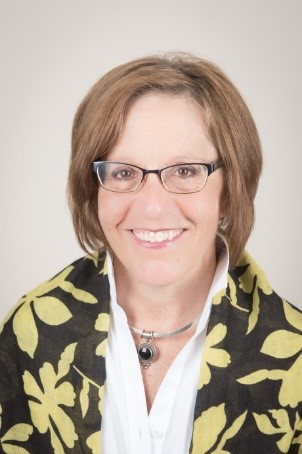 Beth Kinsman Gosch is the Executive Director of The Western New York Foundation and has provided inspiration and leadership in the development of the foundation’s grant making programs since 2005. The Western New York Foundation is a regionally focused foundation serving the seven counties of Western New York.
Beth Kinsman Gosch is the Executive Director of The Western New York Foundation and has provided inspiration and leadership in the development of the foundation’s grant making programs since 2005. The Western New York Foundation is a regionally focused foundation serving the seven counties of Western New York.
A former chef, Beth is a graduate of the esteemed Culinary Institute of America. Beth worked in numerous establishments across the Northeast and Midwest for 20 years before hanging up her apron strings. She was the founder and proprietor of a long established retail and wholesale pastry company and upon the sale of the business she became a restaurant consultant. She transferred her business acumen into a job as a financial officer for a multi-corporate real estate and construction management company in Buffalo, NY. Beth has always had a keen interest in assessing and developing small and mid-sized businesses.
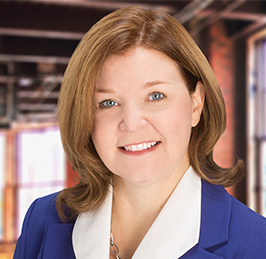 Alice Carle is a senior associate with CGR, Inc. a non-profit research and consulting firm based in Rochester, NY. Prior to CGR, she served as a program director and program officer at the Kresge Foundation in Troy, MI for 10 years and currently serves as a program advisor for the Arts and Culture Program. Earlier in her career, Ms. Carle worked for the Bill and Melinda Gates Foundation, the Ann Arbor Area Community Foundation, and Crisis Clinic of Seattle. Ms. Carle earned a master’s degree in Public Policy from the Gerald R. Ford School of Public Policy at the University of Michigan. She holds an undergraduate degree from John Carroll University in Cleveland, Ohio.
Alice Carle is a senior associate with CGR, Inc. a non-profit research and consulting firm based in Rochester, NY. Prior to CGR, she served as a program director and program officer at the Kresge Foundation in Troy, MI for 10 years and currently serves as a program advisor for the Arts and Culture Program. Earlier in her career, Ms. Carle worked for the Bill and Melinda Gates Foundation, the Ann Arbor Area Community Foundation, and Crisis Clinic of Seattle. Ms. Carle earned a master’s degree in Public Policy from the Gerald R. Ford School of Public Policy at the University of Michigan. She holds an undergraduate degree from John Carroll University in Cleveland, Ohio.
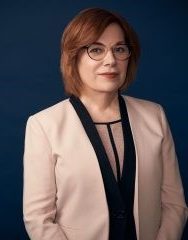 Nora OBrien-Suric is the president of the Health Foundation for Western & Central NY. She has over 18 years of experience in philanthropy, developing national and regional initiatives and building partnerships with federal, state and international organizations. Additionally, she has over 12 years’ experience in direct services including a hospital social work discharge planner, a geriatric mental health specialist and an entitlement expert. Dr. OBrien-Suric holds a doctoral degree in social welfare from Hunter College School of Social Work, and a master’s degree in Behavioral Science and Gerontology from the California State University at Dominguez Hills.
Nora OBrien-Suric is the president of the Health Foundation for Western & Central NY. She has over 18 years of experience in philanthropy, developing national and regional initiatives and building partnerships with federal, state and international organizations. Additionally, she has over 12 years’ experience in direct services including a hospital social work discharge planner, a geriatric mental health specialist and an entitlement expert. Dr. OBrien-Suric holds a doctoral degree in social welfare from Hunter College School of Social Work, and a master’s degree in Behavioral Science and Gerontology from the California State University at Dominguez Hills.
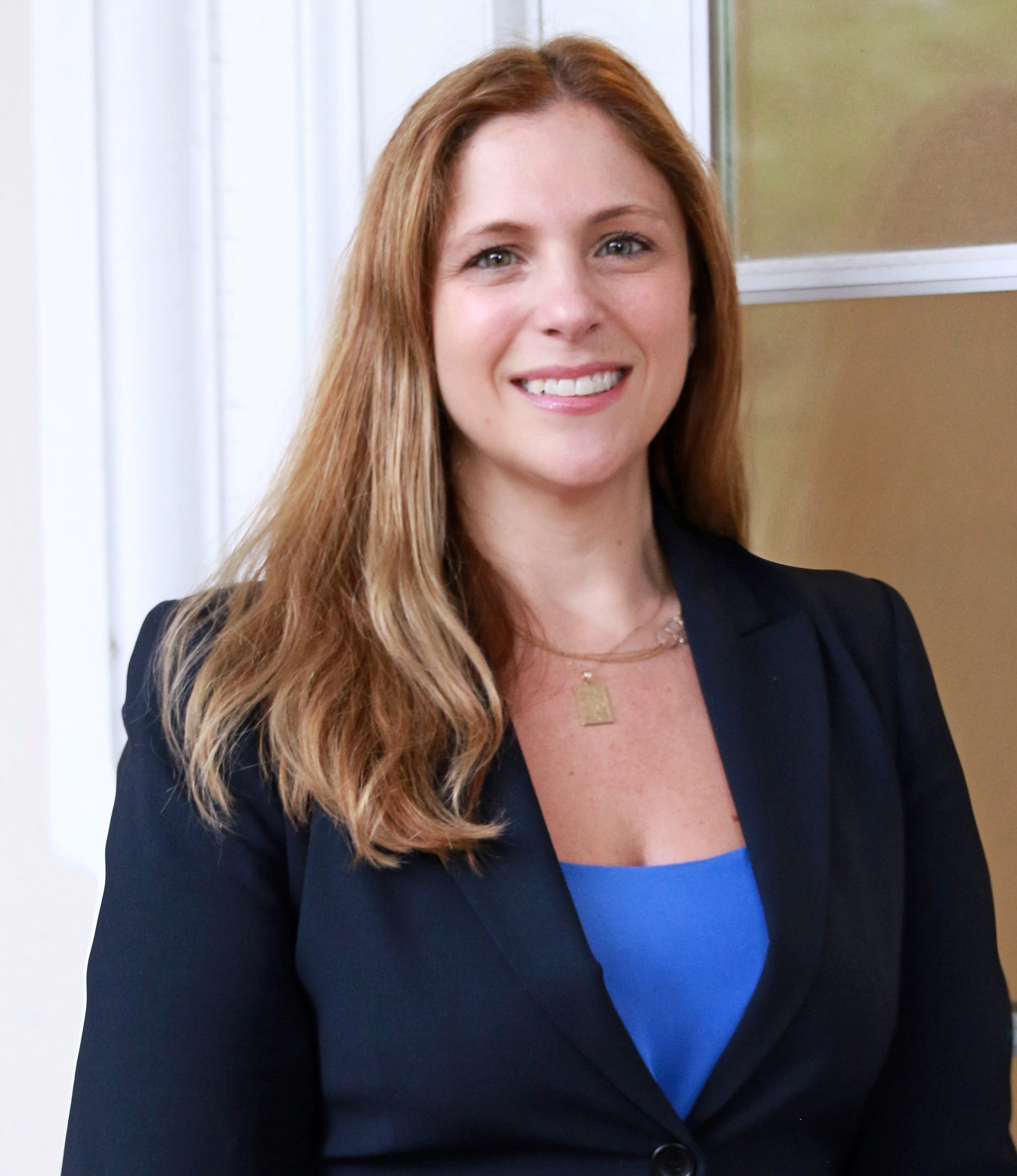 Katie Pieri is the Director of a new working group focused on capacity building in Western New York and Monroe County. She leads the design and oversight of the strategy for the group. In partnership with the group, she is setting the strategic vision, building networks in the community, and connecting nonprofits to existing resources.
Katie Pieri is the Director of a new working group focused on capacity building in Western New York and Monroe County. She leads the design and oversight of the strategy for the group. In partnership with the group, she is setting the strategic vision, building networks in the community, and connecting nonprofits to existing resources.
Most recently, Katie served as the Director of Community Impact at the Community Foundation for Greater Buffalo, where she worked with a broad network of stakeholders to advance community initiatives such as the Community Lead Action Plan and the Green & Healthy Homes Initiative. She brings more than a decade of experience in nonprofits and local government, including the creation of a groundbreaking social service network across Cook County, Illinois focused on providing resources for individuals and families facing eviction.
It's A Matter of Trust
Description:
This session will provide an overview of trust-based philanthropy (TBP), which is a grantmaking approach that intentionally creates opportunities for honest dialogue, authentic learning, and equitable relationships between funders and grantees. Funders at various stages of incorporating TBP into their grantmaking will share their experiences implementing the framework in their contexts, how it has shifted how they do their work, and how view their roles in creating a healthier, thriving nonprofit sector and vibrant civil society.
Speakers/Panelists:
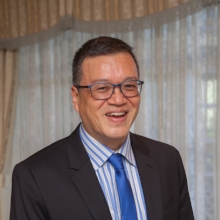 Philip Li is the President & CEO of the Robert Sterling Clark Foundation, which is focused on creating a more vibrant and equitable New York City by investing in her people. Prior to joining the foundation, Phil served as the Chief Operating Officer at The Century Foundation, a public policy think tank, and at the Brooklyn Community Foundation, where he helped the organization convert from a private foundation to a public charity. For four years he led the philanthropic practice at Changing Our World, a nonprofit consultancy and prior to that he worked with the Annie E. Casey Foundation on two of its leadership development initiatives. Phil served as the Executive Director of the Coro New York Leadership Center, a nonprofit that trains and develops individuals interested in public affairs for four years. He was introduced to Coro as a participant in its Leadership New York program, which prompted him to jump to the nonprofit sector from Wall Street. He started his career at Merrill Lynch and finished rating junk bonds with Moody’s Investors Service. Phil serves on the boards of Grantmakers for Effective Organizations and United Philanthropy Forum, and is a former chair of Philanthropy New York, the regional association of grantmakers in New York City. A graduate of the University of Pennsylvania, Phil has a BA in Economics and Biology and an MBA from The Wharton School in Finance and Strategic Planning.
Philip Li is the President & CEO of the Robert Sterling Clark Foundation, which is focused on creating a more vibrant and equitable New York City by investing in her people. Prior to joining the foundation, Phil served as the Chief Operating Officer at The Century Foundation, a public policy think tank, and at the Brooklyn Community Foundation, where he helped the organization convert from a private foundation to a public charity. For four years he led the philanthropic practice at Changing Our World, a nonprofit consultancy and prior to that he worked with the Annie E. Casey Foundation on two of its leadership development initiatives. Phil served as the Executive Director of the Coro New York Leadership Center, a nonprofit that trains and develops individuals interested in public affairs for four years. He was introduced to Coro as a participant in its Leadership New York program, which prompted him to jump to the nonprofit sector from Wall Street. He started his career at Merrill Lynch and finished rating junk bonds with Moody’s Investors Service. Phil serves on the boards of Grantmakers for Effective Organizations and United Philanthropy Forum, and is a former chair of Philanthropy New York, the regional association of grantmakers in New York City. A graduate of the University of Pennsylvania, Phil has a BA in Economics and Biology and an MBA from The Wharton School in Finance and Strategic Planning.
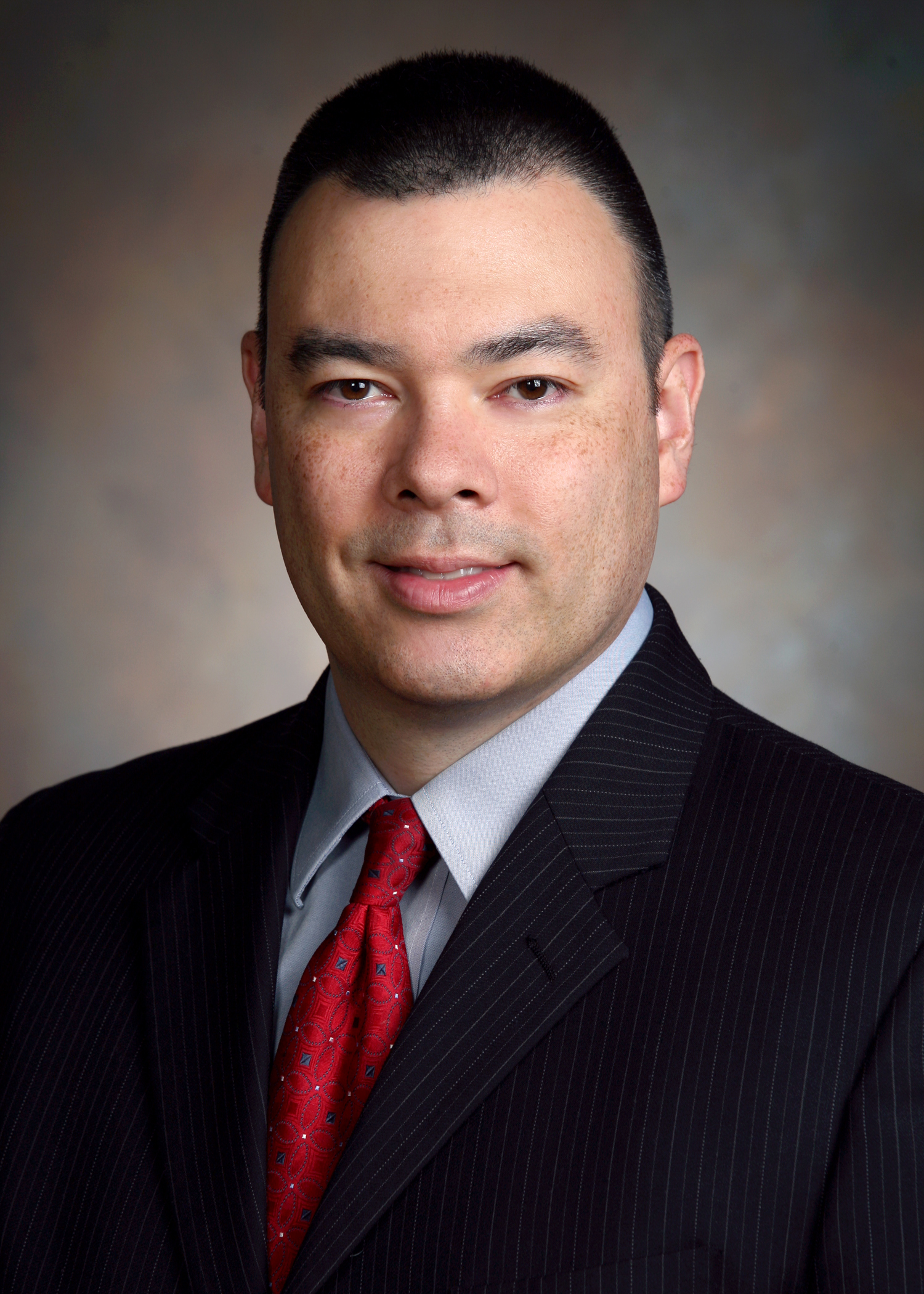 Don Matteson has been with The Peter and Elizabeth C. Tower Foundation since 2006, currently serving as Chief Program Officer. Trained as an academic sociologist specializing in demography, research methods, and statistics, he has spent his entire professional career working with not-for-profit organizations in roles ranging from information technology specialist to operations director or as a consultant.
Don Matteson has been with The Peter and Elizabeth C. Tower Foundation since 2006, currently serving as Chief Program Officer. Trained as an academic sociologist specializing in demography, research methods, and statistics, he has spent his entire professional career working with not-for-profit organizations in roles ranging from information technology specialist to operations director or as a consultant.
Don completed his undergraduate studies at Oberlin College in Ohio, and earned his Master’s degree in Sociology from the University at Buffalo. In his spare time, he obsesses over fountain pens, plays around with technology, occasionally plays racquetball, has been known to go running, and does the best he can to keep up with his six year old son, Connor.
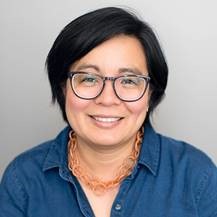 Jennifer Ching is the Executive Director of North Star Fund. She is a passionate advocate for social justice with a deep breadth of experience as a lawyer, non-profit leader, teacher and organizer. She believes in taking risks, thinking creatively and learning from others. Before leading North Star Fund, Jennifer practiced law for almost 20 years and witnessed the power of people to use law and organizing to bring about social change. For seven years, Jennifer led Queens Legal Services (LSNYC), a community-based legal advocacy center that works with thousands of New Yorkers every year. Before Queens Legal Services, she was the Director of New York Appleseed, a public interest legal policy program that connects grassroots groups with private sector resources. As a litigation associate at Paul Weiss LLP, Jennifer worked on a team that represented 13 Guantánamo Bay prisoners held after 9/11. She also litigated civil, immigrants’ and workers’ rights issues in partnership with many community-based organizations as a Gibbons Fellow in Public Interest Law and Constitutional Litigation and Skadden Fellow at the ACLU-NJ. As a young adult and while attending Harvard University and NYU School of Law, Jennifer benefited from community organizing trainings from groups working in Boston’s and New York’s Chinatowns. She was also an Urban Fellow with the New York City Human Resources Administration. Jennifer was raised in New Jersey by immigrant parents, and now lives in Brooklyn with her partner and two children.
Jennifer Ching is the Executive Director of North Star Fund. She is a passionate advocate for social justice with a deep breadth of experience as a lawyer, non-profit leader, teacher and organizer. She believes in taking risks, thinking creatively and learning from others. Before leading North Star Fund, Jennifer practiced law for almost 20 years and witnessed the power of people to use law and organizing to bring about social change. For seven years, Jennifer led Queens Legal Services (LSNYC), a community-based legal advocacy center that works with thousands of New Yorkers every year. Before Queens Legal Services, she was the Director of New York Appleseed, a public interest legal policy program that connects grassroots groups with private sector resources. As a litigation associate at Paul Weiss LLP, Jennifer worked on a team that represented 13 Guantánamo Bay prisoners held after 9/11. She also litigated civil, immigrants’ and workers’ rights issues in partnership with many community-based organizations as a Gibbons Fellow in Public Interest Law and Constitutional Litigation and Skadden Fellow at the ACLU-NJ. As a young adult and while attending Harvard University and NYU School of Law, Jennifer benefited from community organizing trainings from groups working in Boston’s and New York’s Chinatowns. She was also an Urban Fellow with the New York City Human Resources Administration. Jennifer was raised in New Jersey by immigrant parents, and now lives in Brooklyn with her partner and two children.
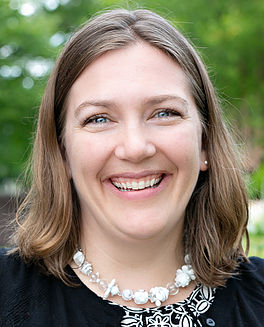 Kara Williams is Director of Strategic Initiatives at the Allyn Family Foundation. She has over 20 years’ experience designing and directing large, complex community health projects. Previously, Kara was Senior Program Officer at the Health Foundation for Western & Central NY, where she led the Foundation’s early childhood, policy and capacity building portfolios. She has also directed clinical service delivery, health promotion and policy advocacy programs at the Onondaga County Health Department, and managed community-based participatory research at the University of California, San Diego School of Medicine’s Division of Community Pediatrics. In addition, she has overseen health journalism programs, trained law students in mediation and creative problem solving, and provided technical assistance to nonprofits in program design and evaluation, and strategic planning. Kara is a 2014 Grantmakers In Health Terrance Keenan fellow and a 2009 fellow of Robert Wood Johnson Foundation’s Ladder to Leadership program. Kara holds a bachelor’s degree from Vassar College and a Master of Public Health degree from San Diego State University.
Kara Williams is Director of Strategic Initiatives at the Allyn Family Foundation. She has over 20 years’ experience designing and directing large, complex community health projects. Previously, Kara was Senior Program Officer at the Health Foundation for Western & Central NY, where she led the Foundation’s early childhood, policy and capacity building portfolios. She has also directed clinical service delivery, health promotion and policy advocacy programs at the Onondaga County Health Department, and managed community-based participatory research at the University of California, San Diego School of Medicine’s Division of Community Pediatrics. In addition, she has overseen health journalism programs, trained law students in mediation and creative problem solving, and provided technical assistance to nonprofits in program design and evaluation, and strategic planning. Kara is a 2014 Grantmakers In Health Terrance Keenan fellow and a 2009 fellow of Robert Wood Johnson Foundation’s Ladder to Leadership program. Kara holds a bachelor’s degree from Vassar College and a Master of Public Health degree from San Diego State University.
Measurement Blueprint: Getting to Impact
Description:
Developing and delivering successful programs for those that you support is not an easy task. In order to create and deliver giving programs that effect change, you need to ensure you have the resources, both financial and human, to do so. The question you should be asking is “how do we attain and demonstrate the deepest impact with the limited resources we have” The answer lies in developing and implementing a Social Impact Framework.
Speakers/Panelists:
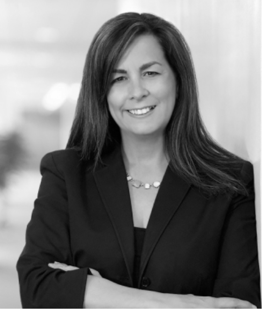 Michelle DiSabato, founder and President of Community Impact Consultants, Inc. (CIC), is a Philanthropic Impact subject matter expert with more than 20 years of experience developing, designing and implementing multi-million-dollar philanthropic initiatives and programmatic social impact analyses.
Michelle DiSabato, founder and President of Community Impact Consultants, Inc. (CIC), is a Philanthropic Impact subject matter expert with more than 20 years of experience developing, designing and implementing multi-million-dollar philanthropic initiatives and programmatic social impact analyses.
Prior to founding CIC, Michelle was a CSR manager at a Fortune 10 global organization, where she managed one of the largest installed grants management systems (200+ users in more than 15 locations and led their measurement initiative to determine the impact of their community engagement. During her tenure at the global organization, Michelle spent time abroad managing the organizations international giving and employee programs from Lausanne, Switzerland.
In 2008, Michelle transitioned into a strategic results consultant and launched CIC working with a wide array of clients in industries ranging from healthcare and finance to consumer products and entertainment providers, helping them align their giving strategies to meet their business and social responsibility goals, while leveraging and optimizing technology to maximize efficiency.
Michelle recently led Blackbaud’s Impact Advisory Services which partnered with the giving community to help them make the most of their social investments and tell their impact story using data, results and a shared language before rejoining CIC in July 2018. Michelle currently serves on the Advisory Board of A Fresh Chapter, a non-profit, dedicated to healing the emotional scars of cancer.
Opportunities for Impact: How Grantmakers Can Leverage Opportunity Zones
The introduction of Opportunity Zones as an economic development tool has become a hot topic throughout the philanthropic sector. The program, established by Congress in the Tax Cuts and Jobs Act of 2017, incentivizes private investment in designated low-income census tracts to spur economic development and job creation in distressed communities. For-profit tax payers that invest in one of the 514 qualified Opportunity Zones in New York State can receive tax benefits. This session will explore how can grantmakers can leverage this program to enhance their existing community investments and maximize their impact. Session presenters will provide a high-level overview of the federal Opportunity Zone program and discuss ways it can be utilized by grantmakers in New York. Presenters will also create space for session attendees to brainstorm strategies related to the program to take back to communities they serve.
An Innovative Collaboration: Leveraging Convenings to Serve Justice-Involved Veterans
Description:
Veterans Treatment Courts (VTCs) are a revolutionary resource that offer treatment in lieu of incarceration for military veterans dealing with substance abuse issues. The first VTC was founded in Buffalo in 2008, and since that time more than 400 VTCs have been created across the country. However, due to political gridlock and failed expansion efforts, this valuable resource has languished in recent years. The NYS Health Foundation served as a neutral convener to bring together a diverse group of stakeholders working to address this issue, and employing a more holistic approach to grantmaking, expanding outreach efforts, and fostering cross-sector partnerships have proven to be a successful strategy. In this session, presenters will share why this strategy has worked, as well as lessons learned from convening diverse stakeholders from both sides of the aisle.
Speakers/Presenters:
- Derek Coy, NYS Health Foundation
- Judge Robert Russell, Buffalo Veterans Treatment Court
- Nick Stefanovic, Monroe County Veteran Services
- General (Ret.) Clyde “Butch” Tate, Justice for Vets
Theory Into Practice: Building Strong Local Networks to Improve Community Health
Description:
This session will describe best practices from the Building Healthy Communities program, an initiative built on the idea that where one lives directly influences one’s health. It will describe efforts across two distinct communities in New York State to create a learning loop, with the goal of increasing the number of streets, parks, playgrounds, and other open spaces that are safe and conducive to physical activity. Place-based investments take time to yield long-lasting results, but accomplishments and challenges are informing approaches that can be replicated across the state.
Speakers/Panelists:
Brian Archie is co-chair and change agent for the Create a Healthier Niagara Falls Collaborative. He currently serves as the Chairman of the Human Rights Commission for the city of Niagara Falls, works in patient financial services at Niagara Falls Memorial Medical Center and is pursuing his bachelor’s degree in Business with a focus in Project Management. Brian was born and raised in Niagara Falls, and currently lives in the North End/Highland area.
Leah Russell is Coordinator of the Near Westside Peacemaking Project at the Center for Court Innovation, which provides community-based conflict resolution services for Onondaga County residents. Leah is lead facilitator of Take Back the Streets (TBTS), a community organizing campaign focused on improving health and safety in the Near Westside neighborhood of Syracuse. Leah coordinates the TBTS Service Providers Collaborative, as well as the resident-led Community Impact Team. Previously, she coordinated 1) the Tribal Access to Justice Innovation Project, which developed website content about emerging best practices in tribal justice systems, and 2) an ESL Drug Treatment Court program in the Syracuse Drug Treatment Court. Leah received her Master’s Degree from the University of California at Santa Barbara in Latin American Studies. Her past activist work includes: advocacy for farmworkers and immigrant communities, organization of academic workers to mobilize for collective bargaining rights, and mentoring at-risk and justice involved youth. For five years, Leah taught courses in the Curriculum & Instruction Department at SUNY Oswego. She has extensive international travel experience and is fluent in Spanish and Brazilian Portuguese.
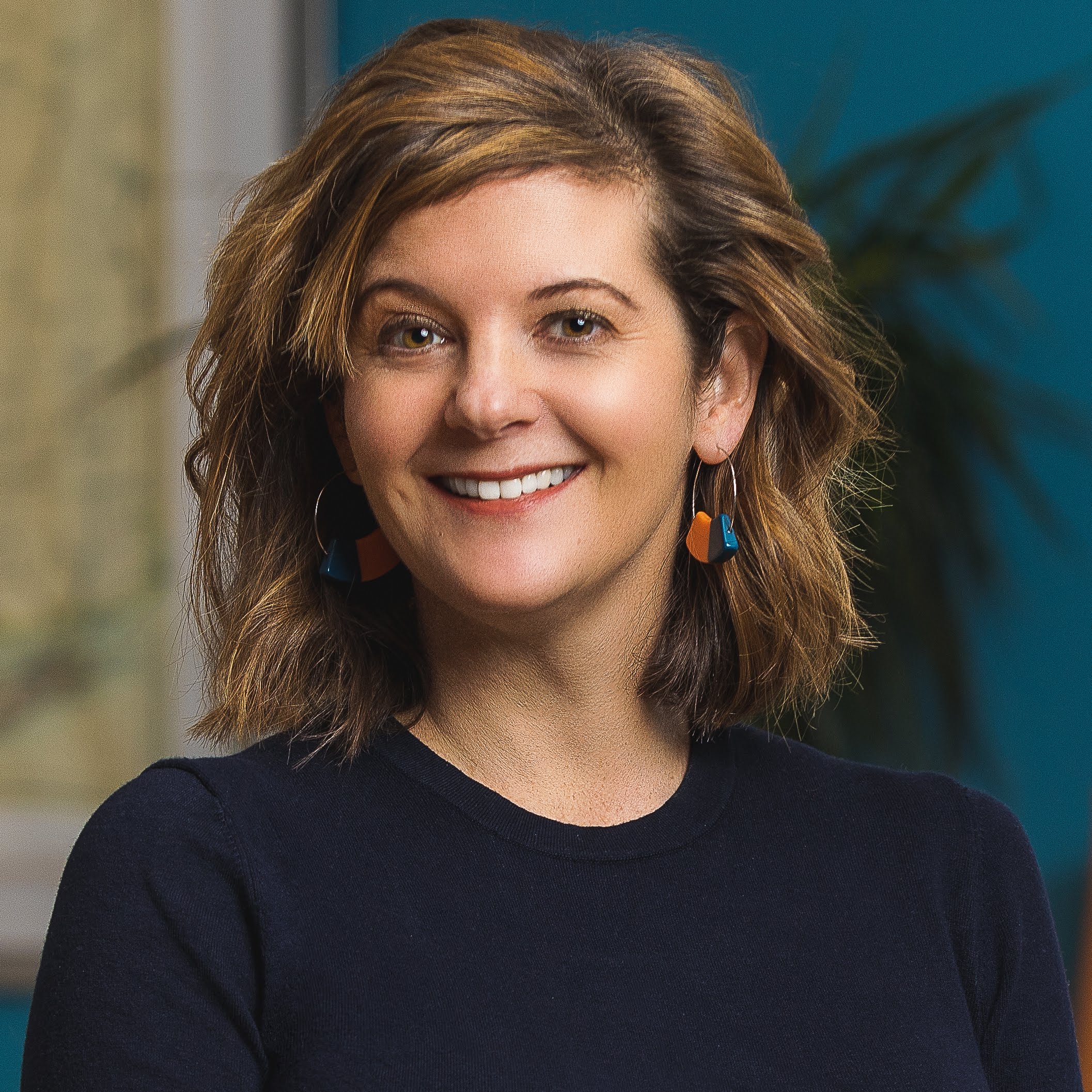 Bronwyn Starr is a Program Officer at the NYS Health Foundation where she focuses on the organization’s priority area on building healthy communities, which leads neighborhood-level and policy interventions to increase residents’ access to healthy, affordable food options, improve the built environment, and link communities with healthy lifestyle programming. Ms. Starr also has managed projects to support county health departments in reducing health disparities and preventing chronic disease; expand primary care access and capacity in the most rural parts of New York State; and increase recruitment and retention of New York State’s primary care workforce. Prior to joining NYSHealth, Ms. Starr led a program at the New York City Department of Health and Mental Hygiene that helped primary care providers improve medication adherence for their patients. She previously worked in the international health sector with Catholic Relief Services and Planned Parenthood, and was a New York City emergency medical technician for 10 years. Ms. Starr holds a Bachelor of Arts degree in Political Science from the University of Oregon and a Master of Public Health degree from New York University. She serves on the steering committee for Community Food Funders.
Bronwyn Starr is a Program Officer at the NYS Health Foundation where she focuses on the organization’s priority area on building healthy communities, which leads neighborhood-level and policy interventions to increase residents’ access to healthy, affordable food options, improve the built environment, and link communities with healthy lifestyle programming. Ms. Starr also has managed projects to support county health departments in reducing health disparities and preventing chronic disease; expand primary care access and capacity in the most rural parts of New York State; and increase recruitment and retention of New York State’s primary care workforce. Prior to joining NYSHealth, Ms. Starr led a program at the New York City Department of Health and Mental Hygiene that helped primary care providers improve medication adherence for their patients. She previously worked in the international health sector with Catholic Relief Services and Planned Parenthood, and was a New York City emergency medical technician for 10 years. Ms. Starr holds a Bachelor of Arts degree in Political Science from the University of Oregon and a Master of Public Health degree from New York University. She serves on the steering committee for Community Food Funders.
Place-Based Funding Across Generations
Description:
Recent surveys of family foundations indicate that only 40% of foundations created since 2010 focus their giving on a geographic area, compared with 80% of foundations created before 1970. But those older family foundations are now bringing on board their third and fourth generation board members, many of whom have few, if any, “hometown” ties and are far more passionate about national and global issues. This session will look at the opportunities and challenges of maintaining a place-based focus for grantmaking across generations and how foundation boards respond to geographic dispersion of family members, increased awareness of national and international needs, and a growing desire to engage in strategic grantmaking with demonstrated impact. The presenters represent three family foundations that have developed different practices to address these concerns while continuing to engage families in place-based philanthropy.
Speakers/Panelists:
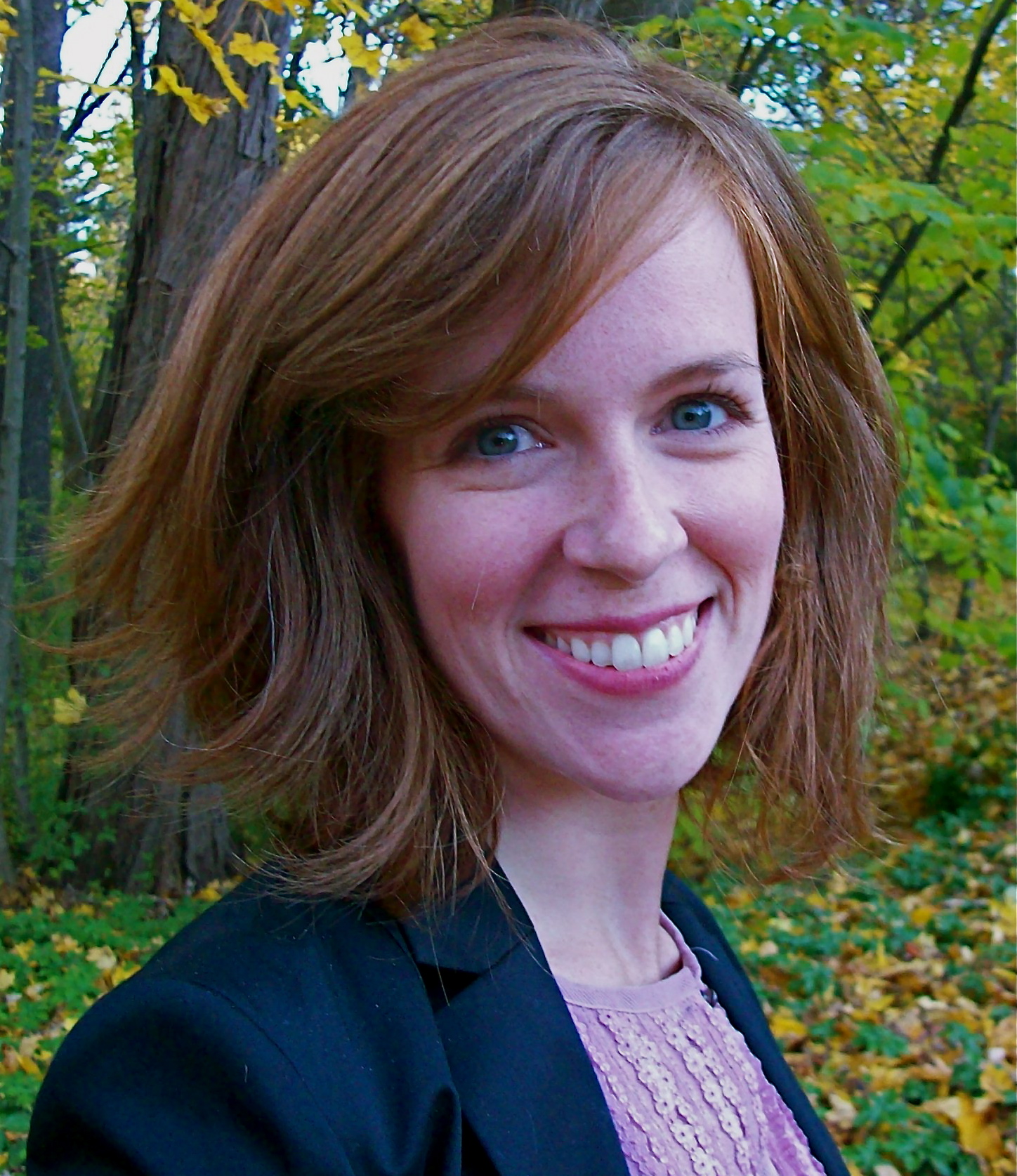 Megan Bell is the Executive Director of the Wilson Foundation – a family foundation based in Rochester, NY that is dedicated to improving the quality of life by initiating and supporting projects that measurably demonstrate a means of creating a sense of belonging within the family and the community. Since joining the Foundation, Ms. Bell has worked with nonprofits in diverse areas, such as housing, education, poverty and mental healthcare. Her skills include leading the Foundation through re-branding and technology improvements, strategic planning, and notably, Board development and next generation inclusion.
Megan Bell is the Executive Director of the Wilson Foundation – a family foundation based in Rochester, NY that is dedicated to improving the quality of life by initiating and supporting projects that measurably demonstrate a means of creating a sense of belonging within the family and the community. Since joining the Foundation, Ms. Bell has worked with nonprofits in diverse areas, such as housing, education, poverty and mental healthcare. Her skills include leading the Foundation through re-branding and technology improvements, strategic planning, and notably, Board development and next generation inclusion.
She has extensive knowledge in programing and fundraising, having worked with major donors, corporate and foundation giving and event management. Ms. Bell was formerly the Program Manager for AIA Chicago, an association of architects in Chicago, Ill. While there she managed all forms of fundraising for the association, as well as public outreach campaigns and educational programming. In addition to Ms. Bell’s professional role with the Wilson Foundation, she provides her time and expertise through service on several boards, most recently the Venture Jobs Foundation, Rochester / Monroe County Continuum of Care, Wilson Commencement Park, and the New York Funders Alliance. Ms. Bell holds a B.A. in Theater from Fairfield University and an M.B.A. in Management and Ethics from Loyola University Chicago.
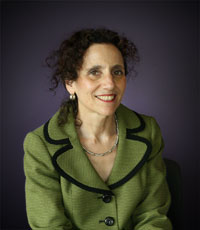 Joanne Volpe Florino has worked in the philanthropic sector for over 35 years and is currently the vice president for philanthropic services at The Philanthropy Roundtable. She also serves as a consultant for the Atlantic Philanthropies Archives at Cornell University, a 2,000+ cubic foot collection of paper and digital records created by the largest limited life foundation to complete its grantmaking to date. Previously, she was senior vice president for public policy at The Philanthropy Roundtable, executive director of the Triad and Park Foundations in Ithaca, and a program associate at Atlantic Philanthropies. She currently serves as a board member of the Legacy Foundation of Ithaca, the New York Council of Nonprofits, and the Paleontological Research Institution. Prior board service includes the History Center in Tompkins County and the Human Services Coalition of Tompkins County. Ms. Florino earned a bachelor’s degree in history from Georgetown University and a master’s degree in American history from Cornell University. She has resided in Tompkins County since 1972.
Joanne Volpe Florino has worked in the philanthropic sector for over 35 years and is currently the vice president for philanthropic services at The Philanthropy Roundtable. She also serves as a consultant for the Atlantic Philanthropies Archives at Cornell University, a 2,000+ cubic foot collection of paper and digital records created by the largest limited life foundation to complete its grantmaking to date. Previously, she was senior vice president for public policy at The Philanthropy Roundtable, executive director of the Triad and Park Foundations in Ithaca, and a program associate at Atlantic Philanthropies. She currently serves as a board member of the Legacy Foundation of Ithaca, the New York Council of Nonprofits, and the Paleontological Research Institution. Prior board service includes the History Center in Tompkins County and the Human Services Coalition of Tompkins County. Ms. Florino earned a bachelor’s degree in history from Georgetown University and a master’s degree in American history from Cornell University. She has resided in Tompkins County since 1972.
The Power of Partnership
Description:
This session will facilitate reflection and discussion to build knowledge for advancing authentic partnership with constituents in both grantmaking and grantee policies and practices, and aims to guide innovative action. Drawing on the Greater Rochester Health Foundation and National Parent Leadership Institute’s collaborative work engaging parent leaders in reviewing grant applications and developing organizations’ capacity for partnership, we will explore how funders can effectively share power and impact practice change to enhance equity in organizational decision making.
Speakers/Presenters:
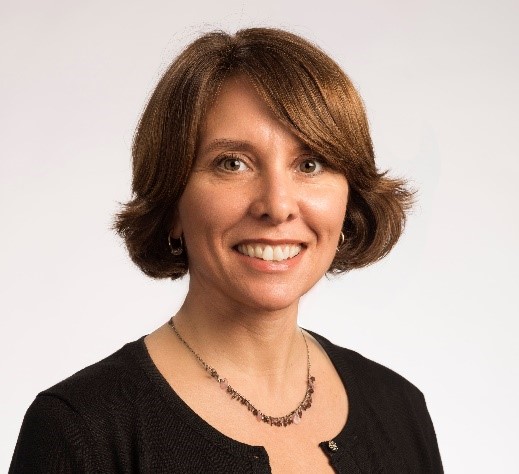 Anita Black is a Program Officer for the Healthy Futures strategy at the Greater Rochester Health Foundation. Anita has extensive experience with children’s behavioral health and strengthening family systems, and experience in organization and systems improvement. Prior to joining the Health Foundation, she served as the Healthy Start Project Director with the Perinatal Network of Monroe County. Anita is a New York State Licensed Clinical Social Worker and holds a bachelor’s degree in Psychology from Skidmore College, and master’s degrees in Child Development and Family Studies from Syracuse University, and Clinical Social Work from the University of Maryland.
Anita Black is a Program Officer for the Healthy Futures strategy at the Greater Rochester Health Foundation. Anita has extensive experience with children’s behavioral health and strengthening family systems, and experience in organization and systems improvement. Prior to joining the Health Foundation, she served as the Healthy Start Project Director with the Perinatal Network of Monroe County. Anita is a New York State Licensed Clinical Social Worker and holds a bachelor’s degree in Psychology from Skidmore College, and master’s degrees in Child Development and Family Studies from Syracuse University, and Clinical Social Work from the University of Maryland.
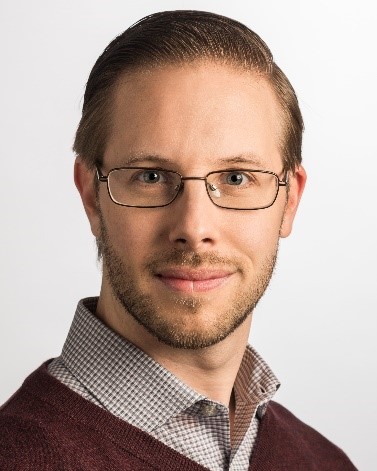 Ari Elliot serves as Research and Evaluation Associate for the Greater Rochester Health Foundation. Ari previously conducted and published research on childhood adversity, psychology, and health as a post-doctoral associate in the University of Rochester Department of Psychiatry. He has experience with quantitative and qualitative data analyses. Ari earned a doctorate in Human Development and a master’s degree in Community Mental Health Counseling from the Warner School of Education & Human Development. In addition, he holds a bachelor’s degree in Economics from Brandeis University.
Ari Elliot serves as Research and Evaluation Associate for the Greater Rochester Health Foundation. Ari previously conducted and published research on childhood adversity, psychology, and health as a post-doctoral associate in the University of Rochester Department of Psychiatry. He has experience with quantitative and qualitative data analyses. Ari earned a doctorate in Human Development and a master’s degree in Community Mental Health Counseling from the Warner School of Education & Human Development. In addition, he holds a bachelor’s degree in Economics from Brandeis University.
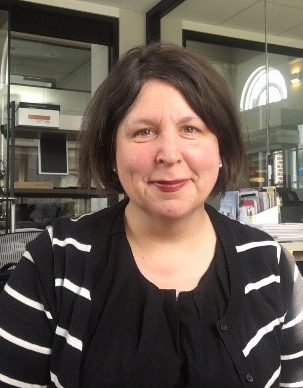 At the National Parent Leadership Institute, Carolyn Lee-Davis partners with the leadership team to drive strategy to increase parent leadership in neighborhoods, schools, and at policy tables to improve health, education, and safety outcomes for children. Prior to joining the National team in 2017, Carolyn’s experience included 12 years as Policy Director at The Children’s Agenda in Rochester NY, and 5 years as Director of the Greater Rochester PLTI in New York.
At the National Parent Leadership Institute, Carolyn Lee-Davis partners with the leadership team to drive strategy to increase parent leadership in neighborhoods, schools, and at policy tables to improve health, education, and safety outcomes for children. Prior to joining the National team in 2017, Carolyn’s experience included 12 years as Policy Director at The Children’s Agenda in Rochester NY, and 5 years as Director of the Greater Rochester PLTI in New York.
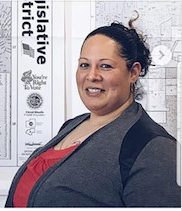 Lydia Rivera-Warr is a Greater Rochester Parent Leadership Training Institute graduate, the owner of Roc City roadside assistance. She is the Vice President of the Edgerton Neighborhood Association where she leads community development, including work on community gardens. She recently became a City Council legislative aide, allowing her to bring her voice and perspective as a City resident and parent to the work of the City of Rochester, and to be a liaison back to her neighborhood.
Lydia Rivera-Warr is a Greater Rochester Parent Leadership Training Institute graduate, the owner of Roc City roadside assistance. She is the Vice President of the Edgerton Neighborhood Association where she leads community development, including work on community gardens. She recently became a City Council legislative aide, allowing her to bring her voice and perspective as a City resident and parent to the work of the City of Rochester, and to be a liaison back to her neighborhood.
What You Need to Know About Rural Health
Description:
Most New York residents are not aware that rural residents of the state are older, sicker and poorer than non-rural residents. Moreover, rural New Yorkers are at a greater risk of inadequate healthcare due to rural hospital closures, distance and isolation, lack of necessary providers, and health related funding cuts. In this workshop, presenters will provide information on healthcare, demographic and economic trends that impact rural health and the impacts of both public and private underinvestment on rural communities and economies. Examples of innovative and effective philanthropic investment in rural health projects will be shared. The workshop will cover the importance of philanthropy’s role in leveraging public resources to help address rural health priorities. Presenters will discuss how healthcare’s discovery of the importance of social determinants of health provides an opportunity for both new and creative approaches to improving rural health outcomes and possible roles for Philanthropy.
Speakers/Panelists:
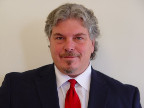 Richard Merchant earned his bachelor’s degree in Physical Anthropology from Michigan State University and his Master’s degree in Forensic Anthropology from the University of Florida. Richard conducted his doctoral work in Medical Anthropology at Texas A&M University.
Richard Merchant earned his bachelor’s degree in Physical Anthropology from Michigan State University and his Master’s degree in Forensic Anthropology from the University of Florida. Richard conducted his doctoral work in Medical Anthropology at Texas A&M University.
Richard currently serves as the President of the New York State Association for Rural Health. Richard is CEO of the Central New York Area Health Education Center, Northern Area Health Education Center, and Health WorkForce New York.
Richard currently teaches Medical Anthropology at Albany College of Pharmacy and Health Sciences. Prior to this, he spent 16 years as a faculty member at SUNY Potsdam teaching pathophysiology in the Community Health Department, as well as courses in Medical Anthropology in the Anthropology Department. From 1994 to 1999 Richard served as a faculty member at the University of Texas Health Sciences Center, College of Medicine, Department of Family Medicine.
He is a member on the Board of Directors of numerous organizations, including the Fort Drum Regional Health Planning Organization and the Community Health Center of the North Country. Richard is also an active member of the Society of Teachers of Family Medicine, the Society for Medical Anthropology, and the Association of the United States Army.
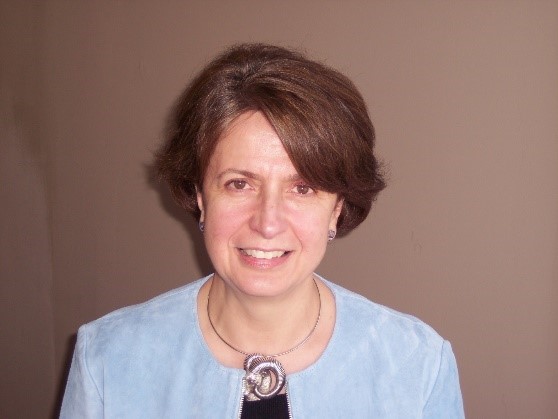 Gertrude O’Sullivan is the Director of Communications & Special Programs at the Foundation for Community Health serving parts of Dutchess County and Columbia County in NY and Litchfield County in CT. Her work with FCH includes working with grantees as well as helping to identify and address issues that affect the health and wellness of FCH’s service area. In that capacity, she has been instrumental in establishing a transportation service, a workforce development & recruitment program and programs supporting immigrants, youth and children. She has served on numerous boards and currently serves as President Elect on the board of the New England Rural Health Association and is a board member of the New York State Association of Rural Health.
Gertrude O’Sullivan is the Director of Communications & Special Programs at the Foundation for Community Health serving parts of Dutchess County and Columbia County in NY and Litchfield County in CT. Her work with FCH includes working with grantees as well as helping to identify and address issues that affect the health and wellness of FCH’s service area. In that capacity, she has been instrumental in establishing a transportation service, a workforce development & recruitment program and programs supporting immigrants, youth and children. She has served on numerous boards and currently serves as President Elect on the board of the New England Rural Health Association and is a board member of the New York State Association of Rural Health.
 John C. (Jack) Salo is a rural advocate and non-profit executive who has worked in South Central New York State for the past 30 years. He currently serves as the Executive Director of the Rural Health Network of South Central New York. Jack’s experience includes leading health, human service and youth development organizations. As a rural health advocate, he works with a wide range of partners to address the root causes of health issues and health disparities. Central to this effort has been providing leadership to develop collaborative, regional projects, including Getthere, a rural mobility service; Rural Health Services Corps (AmeriCorps and VISTA services) and; The Food & Health Network of S.C.N.Y.
John C. (Jack) Salo is a rural advocate and non-profit executive who has worked in South Central New York State for the past 30 years. He currently serves as the Executive Director of the Rural Health Network of South Central New York. Jack’s experience includes leading health, human service and youth development organizations. As a rural health advocate, he works with a wide range of partners to address the root causes of health issues and health disparities. Central to this effort has been providing leadership to develop collaborative, regional projects, including Getthere, a rural mobility service; Rural Health Services Corps (AmeriCorps and VISTA services) and; The Food & Health Network of S.C.N.Y.
Jack received his BA degree in Geography, and his MS degree in education from SUNY Oneonta. He currently serves on the Board of Directors of the NYS Association for Rural Health and Care Compass Network. He lives with his family on a small, diversified farm near Norwich, NY.
To What End? Promoting Lifelong Success and Equity Across a Community
Description:
Opportunity lies in the communities where NY Funders Alliance members are based: the cities, towns, and rural areas outside major metro areas like NYC.
Working in such communities can be a different world. Here, one can more feasibly conceive population-level outcomes, convene key stakeholders in a room, engage community members, strengthen and coordinate programs that reach a majority of residents, and influence the local levers of systems and policy. On the flip side, these advantages often come with a smaller local funder base and flying under the radar of large national, regional, and ‘big city’ foundations that target significant dollars as little as a 30-minute drive away. Smaller communities may simultaneously find resident needs changing if their local economies lose key industries and/or nearby cities see increasing gentrification and cost of living.
This session will provide grantmakers in these areas a chance to assess the situation in their community, understand people’s daily lived experience, and examine the systems that promote inequities in education, health, and economic security. Participants will use this to outline a practical, community-wide approach to help residents achieve lifelong success and eliminate disparities at the population level. Starting with understanding and looking across silos will help grantmakers ensure that their work matters to the people and communities they serve.
Participants will leave the session with a new lens on their local situation and a roadmap to put into action within their institutions and communities. They will also leave with stronger relationships and ongoing opportunities to share knowledge with their peers across NY State.
This session is where community-level change gets real.
Speakers/Panelists:
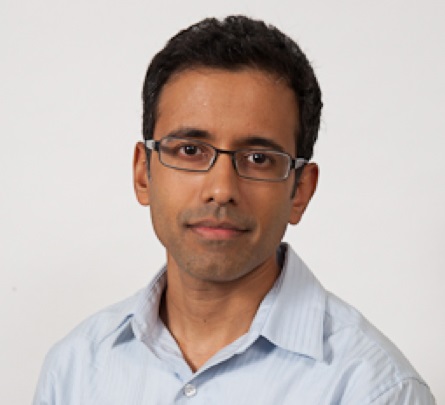 Anand Dholakia, Principal, Root Cause: Since joining Root Cause in 2005, Anand has worked on dozens of strategy, measurement, and coordinated action projects, working at the intersection of program and policy to affect population-level outcomes. He embraces an asset- and humility-based perspective, believing that both communities and the organizations that work on their behalf represent experts to be leveraged more than problems to be solved.
Anand Dholakia, Principal, Root Cause: Since joining Root Cause in 2005, Anand has worked on dozens of strategy, measurement, and coordinated action projects, working at the intersection of program and policy to affect population-level outcomes. He embraces an asset- and humility-based perspective, believing that both communities and the organizations that work on their behalf represent experts to be leveraged more than problems to be solved.
Anand currently leads a Community of Practice of 13 nonprofit and county and state health agency-based early childhood programs for the Get Ready Guilford Initiative, a community-wide effort to help all children in Guilford County, North Carolina enter school ready to learn. This work includes partnering with several major county health programs to increase their accessibility and outreach to families.
Anand’s past projects include leading the capacity-building and member support function of the Campaign for Black Male Achievement, a national membership network that strengthens and connects organizations and leaders committed to improving the life outcomes of Black men and boys. He recently led a national community of practice of W.K. Kellogg Foundation advocacy and intermediary grantees to convene around a shared framework for improving family economic security.
During his tenure, Anand has also broken down the complexity and ambiguity of systems to help stakeholders outline how they change those systems, supported foundations to clarify how they can strengthen equity and social justice, and convened national and place-based groups of organizations around a common purpose.
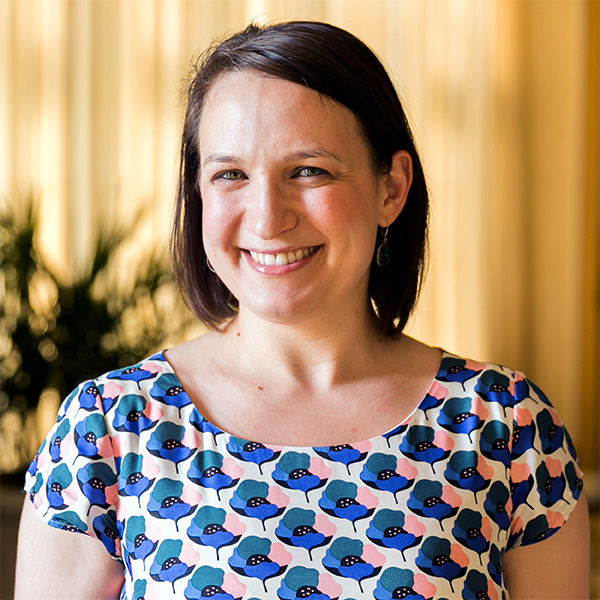 Jillian Rosen, Vice President for Community Investment, Ann Arbor Community Foundation
Jillian Rosen, Vice President for Community Investment, Ann Arbor Community Foundation
As the Vice President for Community Investment, Jillian oversees AAACF’s grantmaking programs, community initiatives, and partnerships.
After earning her BA in anthropology from the University of Maryland, Jillian worked in the nonprofit sector where she had the opportunity to work on issues that she is passionate about: social justice, poverty alleviation and youth engagement in philanthropy. This initial experience in the nonprofit sector concretized her understanding of systemic injustice, which in turn fueled her desire to return to school at Brandeis University, where she received an MBA and a Masters in Professional Leadership.
When her family determined to move to Ann Arbor, the Community Foundation seemed like a perfect fit given Jillian’s understanding of strategy, people, and what makes communities thrive. Jillian’s belief in an ethos of tikkun olam, or repairing the world, gives her a passionate desire to make the world a better place through philanthropy and community partnerships.
2020 Census: Place-Based Thinking toward a Complete Count & the Aftermath
Description:
This session is targeted to place-based funders to provide specific on-ramps for funders not yet working on this issue to understand and engage. An overview of the census funder landscape in NY will be provided, along with a discussion of lessons learned from a pooled fund working together as a statewide coalition of funders. Time will also be spent discussing the practical implications of the outcome of the census count – including the redistricting process. Once all New Yorkers are counted, how can we be sure that the data is used in a way that honors community voices from around the state
The Opioid Crisis: How to Uncover its Impact on Communities, Businesses and the Economy
Description:
The misuse of both prescription and illicit opioids has led to dramatic increases in addiction and overdose deaths across the nation. While there is a growing awareness of the opioid epidemic that is devasting American cities and towns, the costs associated with this crisis have not yet fully been surveyed. The Fiscal Policy Institute will present their study which uses data from the CDC and the New York Department of Health to examine the size and scope of the opioid crisis amongst various demographics throughout New York State and more specifically in the two counties that make up Long Island, Nassau and Suffolk. FPI’s striking report finds that the opioid crisis has caused multi-billion economic damage to Long Island’s economy, business, and communities.
The ripple effects of the opioid crisis impact not only those who are dependent on opioids, but also their families, friends, communities, and even the economy. FPI’s economic damage assessment quantifies the significance of losses to productivity, as well as the costs to businesses, taxpayers, emergency services, libraries, etc, when a person suffers from opioid dependence. Funders will have an opportunity to learn more about how data can be leveraged as a tool to help solve this this public health crisis. Join this dynamic breakout session as the Fiscal Policy Institute presents their analysis, methodology and offers a data-based solutions to overcoming public policy shortfalls. After the presentation, the panelists will facilitate discussion on the report’s findings.
Speakers/Panelists:
Ron Deutsch is the Executive Director of the Fiscal Policy Institute, a position he has held since 2014. The Fiscal Policy Institute (FPI) is an independent, nonpartisan, nonprofit research and education organization committed to improving public policies and private practices to better the economic and social conditions of all New Yorkers. Founded in 1991, FPI works to create a strong economy in which prosperity is broadly shared. Under Ron’s leadership the organization has played a major role in critical statewide policy debates including $15 minimum wage, millionaires tax, economic development transparency, refugee resettlement and many more. Ron has been a tireless advocate for working families for over 25 years in Albany. Before joining FPI, Ron served for 8 years as the Director of FPI’s sister 501(c)(4) organization, New Yorkers for Fiscal Fairness. Prior to that he led the Statewide Emergency Network for Social and Economic Security (a statewide anti-poverty advocacy organization) for 13 years. Deutsch is a graduate of the State University of New York at Albany.
Shamier Settle currently serves as the State Priorities Partnership Fellow at the Fiscal Policy Institute. As a native New Yorker Shamier enjoys working on state-level policies that affect families and communities in her home state. Shamier’s work focuses on immigration research, tax policy, and state budget analysis. She brings an interest in tackling the budget priorities and tax policies that cause or perpetuate racial and economic inequalities. Shamier has experience as a research assistant with the Institute for Women’s Policy Research and the U.S. Department of Commerce and Shamier was also an American Economic Association Summer Fellow at the University of New Mexico. Shamier holds a Master of Science degree in International Economic Policy and Analysis from The University of Westminster, London, UK and a Bachelor of Arts degree in Economics and International Affairs from the George Washington University.
Dr. Jonas Shaende, PhD is Chief Economist at the Fiscal Policy Institute. In this role, Dr. Shaende leads the Fiscal Policy Institute’s research on budget analysis and economic policy. His research is multidisciplinary and data focused. Dr. Shaende comes from an economics faculty role at Long Island University where he’s taught graduate and undergraduate economics. He has also held senior appointments in New York City government. He was a Director of Data Analysis and Strategic Planning at the NYC Department of Consumer Affairs where he led the agency’s data, operations, and policy research work. Prior to that, he was a Research Scientist at the NYC Department of Finance, Tax Policy Division. Dr. Shaende has taught graduate and advanced economics at CUNY and SUNY colleges. Independently, a seasoned economic consultant, he has worked extensively in the areas of global macro, economic policy, financial regulation and forensic economics, data modeling and analysis, and financial engineering. Dr. Shaende is a frequent economics expert and commentator in the media where he discusses current issues in the spheres of economy and finance. He holds PhD, MPhil, and MA degrees in Economics from The New School for Social Research, and a BA in Economics from Long Island University. He holds PhD, MPhil, and MA degrees in Economics from The New School for Social Research, and a BA in Economics from Long Island University.
Think Tank: Funders and Civic Engagement
Description:
In the current political environment, there’s been a growing interest in civic engagement particularly among the most marginalized communities – immigrants, people of color, LGBTQ, and people with disabilities. With the 2020 census ahead, communities across New York State have been mobilizing and strengthening their intersectional movements while also strengthening their civic engagement strategies with a gender, racial, and economic justice lens. Please join The New York Women’s Foundation for a robust conversation where we can mutually gain a better understanding of the state’s civic infrastructure that strengthens the pipeline of leadership for women, girls, and TGNC communities at the margins of political life. Brainstorm ideas about how funders can work together to strengthen networks and partnerships between organizations engaging in this work statewide in 2019 and beyond.
Speakers/Panelists:
Dimple Patel is a Program Officer at the New York Women’s Foundation.
Carlie Steen is Director, Programs at the New York Women’s Foundation.
